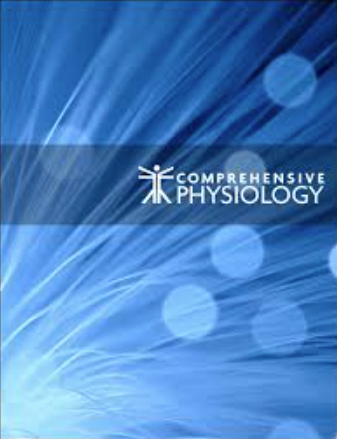Leandro C Brito, Thais C Marin, Luan Azevêdo, Julia M Rosa-Silva, Steven A Shea, Saurabh S Thosar
下载PDF
{"title":"Chronobiology of Exercise: Evaluating the Best Time to Exercise for Greater Cardiovascular and Metabolic Benefits.","authors":"Leandro C Brito, Thais C Marin, Luan Azevêdo, Julia M Rosa-Silva, Steven A Shea, Saurabh S Thosar","doi":"10.1002/cphy.c210036","DOIUrl":null,"url":null,"abstract":"<p><p>Physiological function fluctuates across 24 h due to ongoing daily patterns of behaviors and environmental changes, including the sleep/wake, rest/activity, light/dark, and daily temperature cycles. The internal circadian system prepares the body for these anticipated behavioral and environmental changes, helping to orchestrate optimal cardiovascular and metabolic responses to these daily changes. In addition, circadian disruption, caused principally by exposure to artificial light at night (e.g., as occurs with night-shift work), increases the risk for both cardiovascular and metabolic morbidity and mortality. Regular exercise is a countermeasure against cardiovascular and metabolic risk, and recent findings suggest that the cardiovascular benefits on blood pressure and autonomic control are greater with evening exercise compared to morning exercise. Moreover, exercise can also reset the timing of the circadian system, which raises the possibility that appropriate timing of exercise could be used to counteract circadian disruption. This article introduces the overall functional relevance of the human circadian system and presents the evidence surrounding the concepts that the time of day that exercise is performed can modulate the cardiovascular and metabolic benefits. Further work is needed to establish exercise as a tool to appropriately reset the circadian system following circadian misalignment to preserve cardiovascular and metabolic health. © 2022 American Physiological Society. Compr Physiol 12:3621-3639, 2022.</p>","PeriodicalId":10573,"journal":{"name":"Comprehensive Physiology","volume":"12 3","pages":"3621-3639"},"PeriodicalIF":4.2000,"publicationDate":"2022-06-29","publicationTypes":"Journal Article","fieldsOfStudy":null,"isOpenAccess":false,"openAccessPdf":"https://www.ncbi.nlm.nih.gov/pmc/articles/PMC10214902/pdf/nihms-1897868.pdf","citationCount":"3","resultStr":null,"platform":"Semanticscholar","paperid":null,"PeriodicalName":"Comprehensive Physiology","FirstCategoryId":"3","ListUrlMain":"https://doi.org/10.1002/cphy.c210036","RegionNum":2,"RegionCategory":"医学","ArticlePicture":[],"TitleCN":null,"AbstractTextCN":null,"PMCID":null,"EPubDate":"","PubModel":"","JCR":"Q1","JCRName":"PHYSIOLOGY","Score":null,"Total":0}
引用次数: 3
引用
批量引用
Abstract
Physiological function fluctuates across 24 h due to ongoing daily patterns of behaviors and environmental changes, including the sleep/wake, rest/activity, light/dark, and daily temperature cycles. The internal circadian system prepares the body for these anticipated behavioral and environmental changes, helping to orchestrate optimal cardiovascular and metabolic responses to these daily changes. In addition, circadian disruption, caused principally by exposure to artificial light at night (e.g., as occurs with night-shift work), increases the risk for both cardiovascular and metabolic morbidity and mortality. Regular exercise is a countermeasure against cardiovascular and metabolic risk, and recent findings suggest that the cardiovascular benefits on blood pressure and autonomic control are greater with evening exercise compared to morning exercise. Moreover, exercise can also reset the timing of the circadian system, which raises the possibility that appropriate timing of exercise could be used to counteract circadian disruption. This article introduces the overall functional relevance of the human circadian system and presents the evidence surrounding the concepts that the time of day that exercise is performed can modulate the cardiovascular and metabolic benefits. Further work is needed to establish exercise as a tool to appropriately reset the circadian system following circadian misalignment to preserve cardiovascular and metabolic health. © 2022 American Physiological Society. Compr Physiol 12:3621-3639, 2022.
运动的时间生物学:评估运动的最佳时间,以获得更大的心血管和代谢益处。
生理功能在24小时内波动是由于持续的日常行为模式和环境变化,包括睡眠/觉醒、休息/活动、光/暗和每日温度循环。体内的昼夜节律系统为这些预期的行为和环境变化做好准备,帮助协调心血管和代谢对这些日常变化的最佳反应。此外,主要由夜间暴露于人造光(例如夜班工作)造成的昼夜节律紊乱增加了心血管和代谢发病率和死亡率的风险。有规律的锻炼是对抗心血管和代谢风险的对策,最近的研究表明,与早晨锻炼相比,晚上锻炼对血压和自主神经控制的心血管益处更大。此外,运动还可以重置昼夜节律系统的时间,这就提出了适当的运动时间可以用来抵消昼夜节律中断的可能性。本文介绍了人类昼夜节律系统的整体功能相关性,并提出了围绕运动时间可以调节心血管和代谢益处这一概念的证据。在昼夜节律失调后,需要进一步的工作来建立锻炼作为适当重置昼夜节律系统的工具,以保持心血管和代谢健康。©2022美国生理学会。中国生物医学工程学报(英文版),2012。
本文章由计算机程序翻译,如有差异,请以英文原文为准。


 求助内容:
求助内容: 应助结果提醒方式:
应助结果提醒方式:


